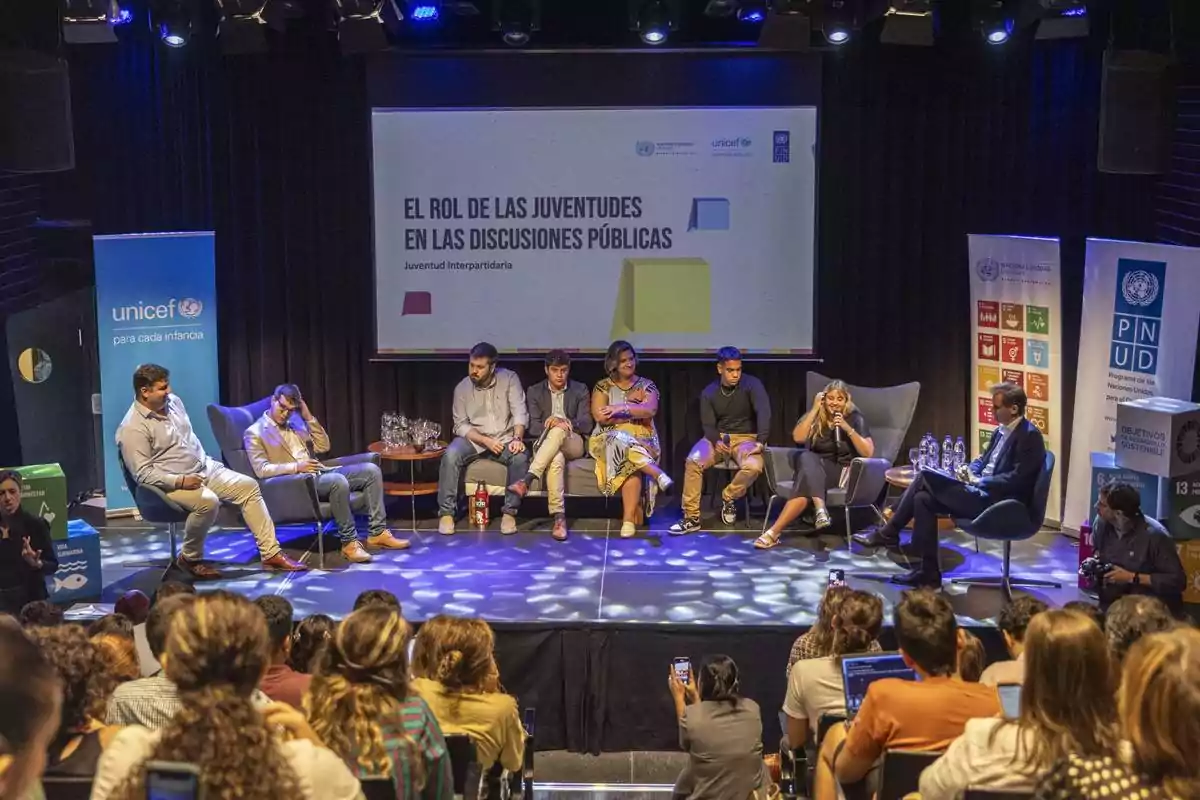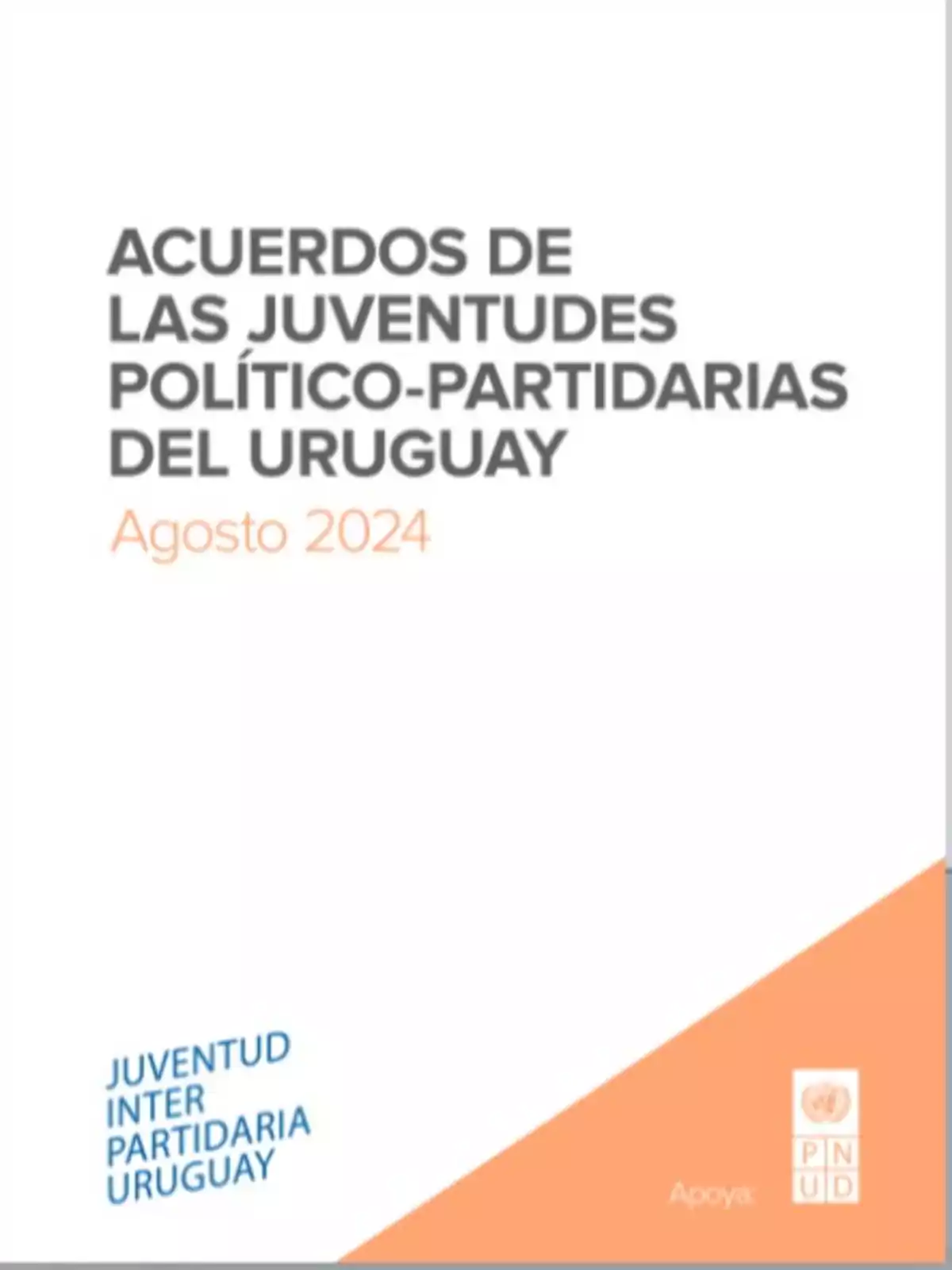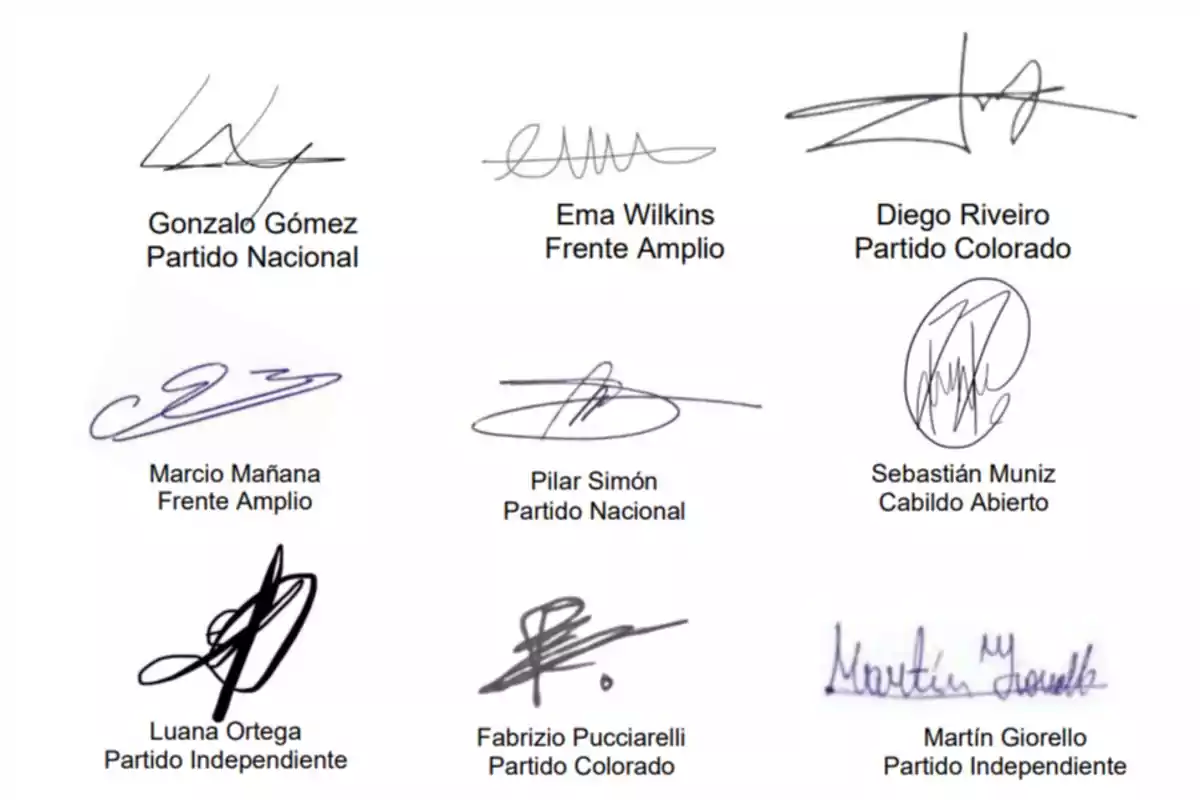
Is Uruguay's future in the hands of the Globalist Single Party?
The political class rebels against those who want a better future
Representatives of the interparty youth, promoted by the United Nations Development Programme, went to cry on No Toquen Nada because they are "concerned" about the far-right rhetoric and the Plataforma Por La Libertad.
On June 4, three members of the Interparty Globalist Youth —Fabrizio Pucciarelli (Partido Colorado), Gonzalo Gómez (Partido Nacional), and Ema Wilkins (Frente Amplio)— went on the program No Toquen Nada because they are frightened by the rise of what they call "far-right," which, in reality, are the ideas of liberty.
The truth is that their rhetoric has become so boring that it fails to generate support. They are scared and "sound the alarms" because the ideas of liberty are sweeping across all of Latin America and have already arrived in Uruguay with the Plataforma Por La Libertad.
Paradoxically, those who seek to combat "disinformation" shamelessly spread fake news: they once again discussed the Viva la Derecha Fest Uruguay event (they can't get over it) and presented the glorious moment of the speech by Argentine writer Nicolás Márquez Noriega, when he attacks the centrist political parties, claiming it was Jorge Márquez, the pastor of the Misión Vida para las Naciones church.
Gonzalo Gómez, a member of Partido Nacional, pointed out that "in these speeches, when they talk about the center, they are not referring to the ideological center." Along those lines, as a member of a centrist party, he defended that "being centrist means being open to dialogue" and argued that this is what, in this case, Nicolás Márquez —for them, who do little research, Jorge Márquez— is criticizing.

However, what they are criticized for is their adherence to the globalist agenda that seeks to break with the sovereignty of nation-states and their respective cultural identities.
Being centrist is not being "open to dialogue," it is being globalist.
The United Nations Development Programme (UNDP) is the United Nations (UN) agency responsible for promoting the implementation of the Sustainable Development Goals (SDGs) in countries, established within the framework of the 2030 Agenda. This is a global plan, adopted in 2015 by the United Nations, that commits all countries in the world to achieve 17 Sustainable Development Goals and 169 targets before 2030. Recently, that deadline was extended through the Vision 2045 initiative because the agenda is designed to fail.
In Uruguay, in 2023 (under the administration of Luis Lacalle Pou), the UNDP launched the project "Dialogar Acerca." Framed within Uruguay's commitment to the entirety of the global agenda, this proposal specifically emphasizes SDG 16 (Peace, Justice, and Strong Institutions) and SDG 10 (Reduced Inequalities), as it seeks to promote democratic dialogue, citizen participation, and the inclusion of "diverse voices" in the country's social and political processes.
You may also be interested in this article on how public funds are channeled toward ideological agendas such as "menstrual visibility", while the discourse of inclusion and sustainability is promoted.
Thus, from the UNDP Uruguay website, they state that "Dialogar Acerca" "has as its main objective to provide political youth with the opportunity to lead and participate in spaces for dialogue on the challenges of democracy. Under the name 'Interparty Youth,' political youth revitalized previous experiences of association and joint work, promoting intergenerational dialogue as a key element and inviting previous generations."

This is how the Interparty Youth emerges: a youth initiative mainly coordinated by the UNDP that brings together young people from various political parties with parliamentary representation —Frente Amplio, Colorado, Nacional, Cabildo Abierto, and Independiente— to debate, build consensus, and propose solutions to the country's major challenges from a globalist perspective.
Interparty Globalist Youth: is the future in the hands of the Globalist Single Party?
On Wednesday, August 7, in the Special Events Hall of the Legislative Palace, Uruguay's interparty globalist youth held the event "Towards a More Deliberative and Inclusive Democracy," as part of the "Dialogar Acerca" initiative of the United Nations Development Programme (UNDP).
During the event, the young people delivered a document of thematic agreements to the presidential candidates —Álvaro Delgado, Yamandú Orsi, Andrés Ojeda, Guido Manini Ríos, and Pablo Mieres. According to the young agenda-setters, this is the "result of a long process of work" that reflects "a series of commitments that our generation wishes to establish in the context of the democratic contest we are experiencing."
United by the global agenda the document presented begins as follows:
"The political-party youth of Uruguay, coordinated by the United Nations Development Programme, present this document of agreements to the presidential candidates. It represents the aspirations and needs of an entire Uruguayan generation, not responding to party agendas, but promoting a future of opportunity, justice, and well-being."
Gonzalo Gómez, a young globalist from Partido Nacional, stated: "At a time when polarization and political violence are increasing in the region, the youth of Uruguay's political parties want to send a clear message: it is possible to follow our country's best traditions, such as consensus and interparty dialogue," he emphasized. Likewise, Ema Wilkins from Frente Amplio maintained that "young men and women want to be part of decision-making, and this collective document is proof of that."
You may also be interested in this analysis on how the Uruguayan state has been captured by parasitic interests that hide behind noble causes.
The alternative to globalism is the New Right.
In the face of this dystopian scenario, it becomes urgent to confront globalism. The only way is through what Agustín Laje called the New Right.
To achieve this, it is necessary to coordinate among liberals, libertarians, conservatives, and sovereigntists. This is the only way to prevent, as Argentina has been doing, a global agenda —which has nothing to do with the concrete needs of each nation— from continuing to be imposed undemocratically.
There is hope in Uruguay. A political platform is emerging that seeks to confront global governance. A political option is taking shape that is not ashamed to be an authentic right nor to defend the ideas of liberty. Its name is Plataforma Por La Libertad.
More posts: